Filter by
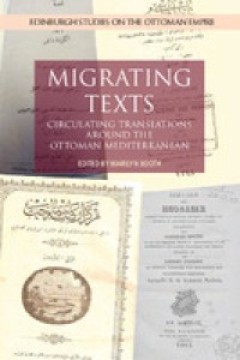
Migrating Texts : Circulating Translations around the Eastern Mediterranean
Explores translation in the context of the multi-lingual, multi-ethnic late-Ottoman Mediterranean world. Fénelon, Offenbach and the Iliad in Arabic, Robinson Crusoe in Turkish, the Bible in Greek-alphabet Turkish, excoriated French novels circulating through the Ottoman Empire in Greek, Arabic and Turkish: literary translation at the eastern end of the Mediterranean offered worldly vistas and …
- Edition
- -
- ISBN/ISSN
- 9781474438995
- Collation
- 368 halaman
- Series Title
- Edinburgh Studies on the Ottoman Empire
- Call Number
- 900 MIG

Migrating Fictions : Gender, Race, and Citizenship in U.S. Internal Displacem…
In Migrating Fictions, Manzella turns to U.S. Women's literature that represents internal migrations in the US in the twentieth century. This project situates itself within the “spatial turnâ€_x009d_ of literary studies to analyze the way the U.S has displayed a history of spatial colonization, which we see as a pattern we turn to a variety of seemingly disconnected forced migrations. …
- Edition
- -
- ISBN/ISSN
- 9780814213582
- Collation
- 264 halaman
- Series Title
- -
- Call Number
- 900 MAN m
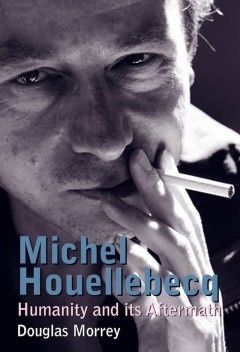
Michel Houellebecq : Humanity and its Aftermath
Michel Houellebecq is perhaps the single most successful and controversial of all contemporary novelists writing in French. Houellebecq has become a global publishing phenomenon: his books have been translated worldwide, three film adaptations of his work have been produced, and the author has been the subject of million-euro publishing deals and of successive media scandals in France. His nove…
- Edition
- -
- ISBN/ISSN
- 9781846318610
- Collation
- -
- Series Title
- -
- Call Number
- 900 MOR m
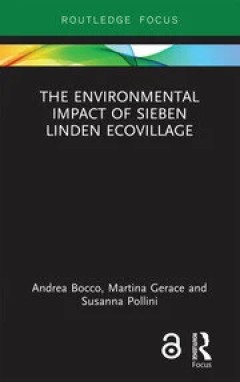
The Environmental Impact of Sieben Linden Ecovillage
The Open Access version of this book, available at https://www.taylorfrancis.com/books/9780367145644, has been made available under a Creative Commons Attribution-Non Commercial-No Derivatives 4.0 license. Environmental impact assessment is widely taught and researched, but rarely covers both lifestyle and building construction in a town or neighbourhood. This book provides a broad assessmen…
- Edition
- -
- ISBN/ISSN
- 9780429032349
- Collation
- -
- Series Title
- -
- Call Number
- 910

Life in Transit: Jews in Postwar Lodz, 1945-1950
"Life in Transit is the long-awaited sequel to Shimon Redlich’s widely acclaimed Together and Apart in Brzezany, in which he discussed his childhood during the War and the Holocaust. Life in Transit tells the story of his adolescence in the city of Lodz in postwar Poland. Redlich’s personal memories are placed within the wider historical context of Jewish life in Poland and in Lodz during t…
- Edition
- Ed. 1
- ISBN/ISSN
- 9781618116888;9781618119285
- Collation
- -
- Series Title
- Studies in Russian and Slavic Literatures, Cultures, and History,
- Call Number
- 927 RED l

Money and Coinage in the Middle Ages
This volume is the first in a new series entitled Reading Medieval Sources, examining different genres of sources in the Middle Ages, and this book focuses on ways of studying medieval money, and the most direct manifestation of money: coinage. It is intended to introduce readers to a range of approaches to a subject that has, traditionally, been seen as somewhat specialised domain of highly te…
- Edition
- Ed. 1
- ISBN/ISSN
- 9789004383098
- Collation
- -
- Series Title
- -
- Call Number
- 909.080
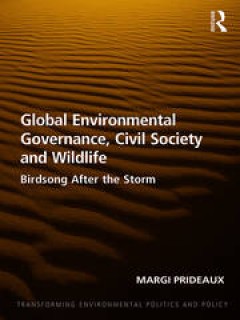
Global Environmental Governance, Civil Society and Wildlife
The world is entering a period of unprecedented environmental and political change. By mid-century, climate change will cause dramatic ecosystem shifts. Hundreds, if not thousands, of species will disappear from the earth including icons like polar bears, gorillas, Asiatic lions and bluefin tuna. For many cultures ’species’ are ’place’. As our cultivated global community erodes, interna…
- Edition
- -
- ISBN/ISSN
- 9781315584812
- Collation
- -
- Series Title
- -
- Call Number
- 910
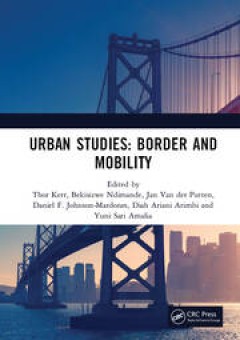
Urban Studies : Proceedings of the 4th International Conference on Urban Stud…
This work contains a selection of papers from the International Conference on Urban Studies (ICUS 2017) and is a bi-annual periodical publication containing articles on urban cultural studies based on the international conference organized by the Faculty of Humanities at the Universitas Airlangga, Indonesia. This publication contains studies on issues that become phenomena in urban life, includ…
- Edition
- -
- ISBN/ISSN
- 9780429507410
- Collation
- -
- Series Title
- -
- Call Number
- 910
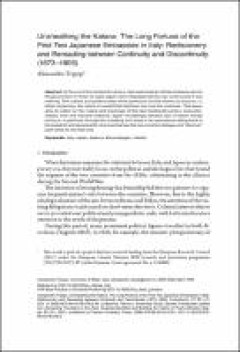
Chapter Unsheathing the Katana. The Long Fortune of the First Two Japanese Em…
At the end of the nineteenth century, Italy welcomed an official embassy sent by the government in Tokyo to make Japan more integrated into the new world scene it was entering. The cultural and political elites of the peninsula had the chance to discover, or rather rediscover, the charm of a world that had been lost over the centuries. This essay aims to reflect on the means and meanings of thi…
- Edition
- -
- ISBN/ISSN
- 9788855185790
- Collation
- Pages 19
- Series Title
- -
- Call Number
- 900 TRI c
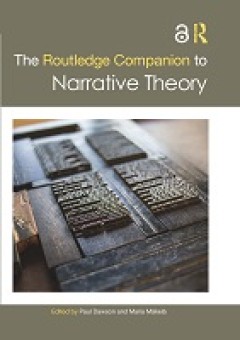
Chapter 35 Migration and Narrative Dynamics
How can narrative theory account for the changing roles of storytelling and storysharing in the public sphere? This essay proposes a new concept of narrative dynamics, one that generates well-constrained descriptions of specific elements, features, or qualities of narratives, as well as programmatic claims concerning their potential uses and effects. Narrative dynamics research is equally inter…
- Edition
- -
- ISBN/ISSN
- 9780367569730
- Collation
- Pages 15
- Series Title
- -
- Call Number
- 900 ROY c
 Computer Science, Information & General Works
Computer Science, Information & General Works  Philosophy & Psychology
Philosophy & Psychology  Religion
Religion  Social Sciences
Social Sciences  Language
Language  Pure Science
Pure Science  Applied Sciences
Applied Sciences  Art & Recreation
Art & Recreation  Literature
Literature  History & Geography
History & Geography